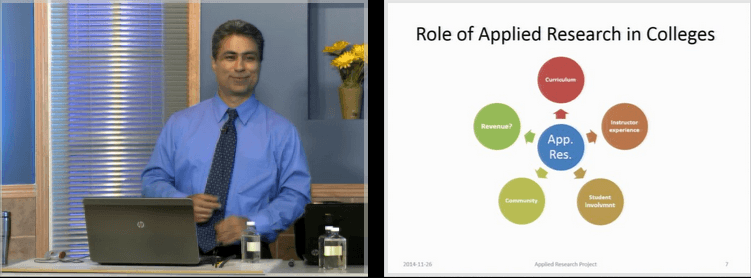SHRCC Applied Research Funding for Colleges – Info session
The new, $15-million Community and College Social Innovation Fund offered by the Social Sciences and Humanities Research Council of Canada (SSHRC) was presented in an info session at Red River College.
View the session here: http://blogs.rrc.ca/etv/information-sessions-and-resources/
More info:
The deadline for applications is March 2, 2015.
Proposals to the Community and College Social Innovation Fund (CCSIF) are expected to:
- foster social innovation by connecting the talent, facilities and capabilities of Canada’s colleges and polytechnics with the research needs of local community organizations; and
- facilitate the development of collaborative social innovation research that brings together researchers, students and partners to address research challenges pertaining to social innovation.
Applicants can propose partnerships that build on existing collaborations or are new collaborations or innovative models. All partnerships should promote research, connection and professional training. Applicants are encouraged to explore multi-sector partnership approaches with partner organizations from the private, public and/or not-for-profit sectors.
For more information, please contact Jose Delos Reyes at jdelosreyes@RRC.CA








